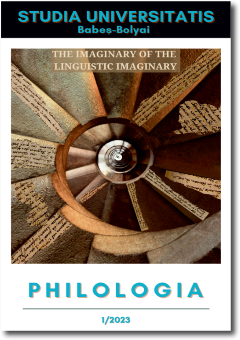BUILDING TRANSLATION COMPETENCE THROUGH DIARY STUDIES: AT THE CROSSROADS OF STUDENTS' REFLECTION AND IMAGINATION
BUILDING TRANSLATION COMPETENCE THROUGH DIARY STUDIES: AT THE CROSSROADS OF STUDENTS' REFLECTION AND IMAGINATION
Author(s): Valentina Mureșan, Andreea ȘerbanSubject(s): Applied Linguistics, Psycholinguistics, Higher Education , Methodology and research technology, Translation Studies
Published by: Studia Universitatis Babes-Bolyai
Keywords: translation competence (acquisition); diary studies; instruments; challenges; good practices;
Summary/Abstract: Building Translation Competence through Diary Studies: at the Crossroads of Students’ Reflection and Imagination. Our paper tackles a more practical aspect of the translation training process in the context of translation competence acquisition (TCA) by focusing on a group of students of the Applied Modern Languages Programme, who were in the first year when our research was initiated. This study represents the second part of a small-scale qualitative research, which used diaries as a research instrument to investigate the strategies and tools employed by students as they tried to overcome challenges in translation and to develop good practices for their future career as translators. Participants were asked to reflect on register related issues encountered during the process of learning about and doing translation, since in our teaching experience this is one of the most prominent challenges to overcome. By employing this open-ended tool, we wanted to see whether diary keeping increased students’ awareness of register related problems and, moreover, whether students integrated reflection as one of the strategies to develop competence in translation. As a follow-up to our initial research, participants (now graduates) were asked to reflect on their study and translation practices and instruments so as to discuss which of these they retained (compared to the first year), what strategies they make use of now both for learning and for doing translation work, and whether they have discovered any new ones that make translator training more effective.
Journal: Studia Universitatis Babes-Bolyai - Philologia
- Issue Year: 68/2023
- Issue No: 1
- Page Range: 233-248
- Page Count: 16
- Language: English

